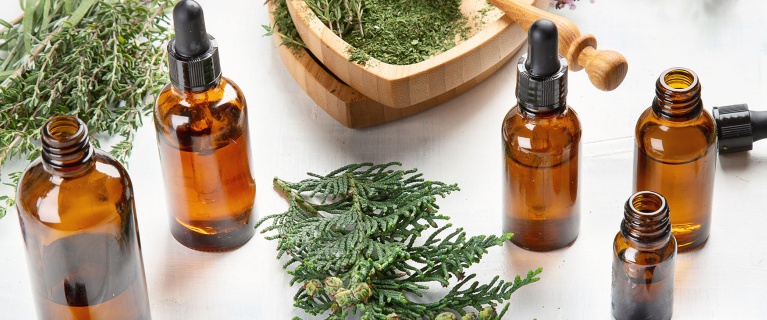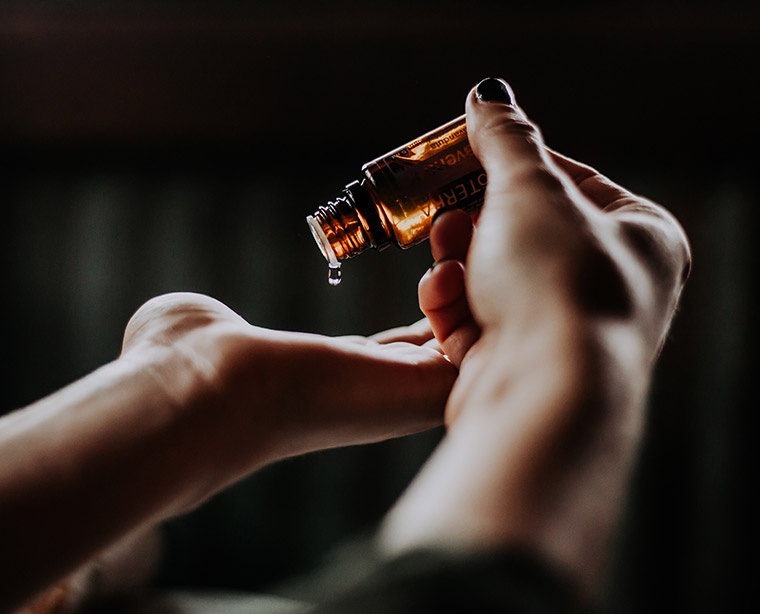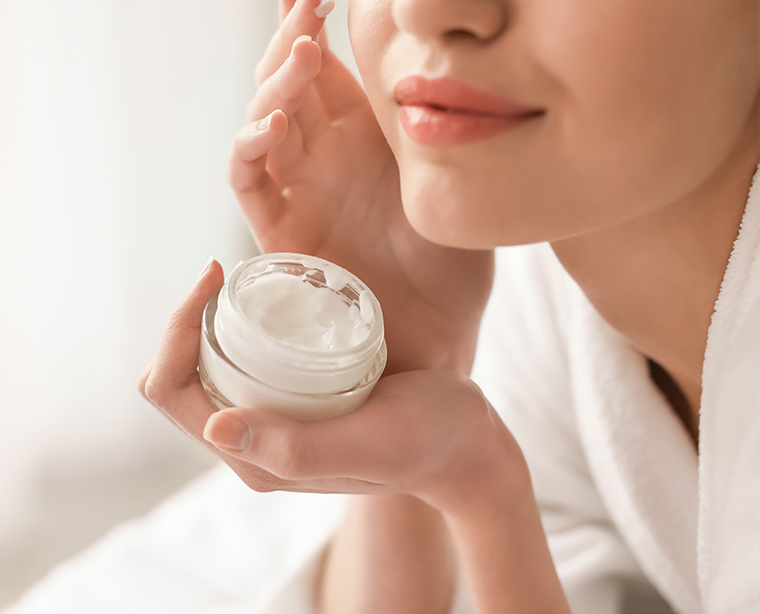

I have eczema: should I avoid essential oils?

Many people enjoy the numerous benefits of essential oils. Unfortunately, those with eczema are better off avoiding them.
Essential oils increase sensitivity
Allergic reactions to essential oils are rare, but when they do occur, they are usually quite severe. People with eczema are advised to stay away from essential oils because, in some cases of prolonged or repeated exposure, they can cause the skin to become more sensitive. In other words, they can aggravate eczema, similarly to an irritant. But they can also trigger additional symptoms of a bona fide contact eczema.
List of essential oils that may trigger a reaction
The essential oils most often associated with skin reactions include the following:
- basil
- pink pepper
- birch
- cassia
- lemon
- citronella
- clove
- cumin
- fennel
- wintergreen
- ginger
- lemon balm
- oakmoss
- orange
- oregano
- parsley seed
- peppermint
- myrrh
- allspice
- pine
- black pepper
- fir
- tagetes
- lemongrass
- lemon verbena
Some essential oils have yet another drawback when combined with sun exposure. More specifically, citrus-based essential oils can increase your risk of sun burns and dark spots on the skin (bergamot, lemon, mandarin orange, etc.). Furthermore, there is significant evidence to suggest that some essential oils, such as lavender and tea tree, are endocrine disruptors.
For eczema, natural isn’t always best
Remember that certain plants may contain active substances that are toxic or potential allergens. Even vinegar, which is often used as a natural alternative to cleaners or detergents, is especially harsh on baby’s skin.
In the same vein, place your laundry in the dryer rather than hanging clothes to dry outdoors (where allergens are whirling around, particularly in spring).
In short, you should avoid all allergens and irritants, whether natural or synthetic.


